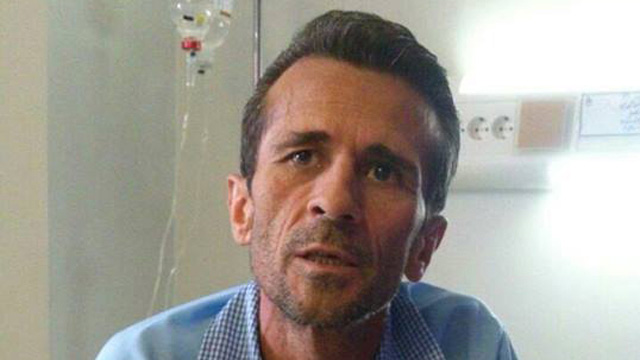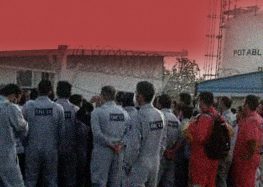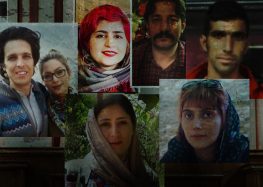Union Leader Receives Unofficial Warning To Return to Prison or Lose $140,000 Bail

Labor rights activist Jafar Azimzadeh has been told that he must return to Evin Prison in Tehran by January 13, 2017 or his guarantor will lose 450 million tomans ($140,000 USD). However, an informed source told the International Campaign for Human Rights in Iran that Azimzadeh will not abide without an official summons.
“Mr. Azimzadeh has not personally received a written summons to go back to prison. He has only been ordered to over the phone, but that’s not an official summons,” said the source. “Mr. Azimzadeh also believes the prison sentence against him is unlawful and says that if the authorities insist, they can come and illegally arrest him at his home in the same old, usual way.”
The Campaign has obtained a copy of the written version of the non-official warning that was sent by the Tehran prosecutor’s office to Parvin Mohammadi, the guarantor, on December 14, 2016. According to Iranian law, convicts sentenced to prison time must receive an official written summons before being required to surrender themselves.
The chairman of the Free Workers Union of Iran was sentenced to six years in prison in March 2015 for “assembly and collusion against national security” and “propaganda against the state.”
While imprisoned and awaiting a decision on his appeal, he endured a 64-day hunger strike to demand furlough (temporary leave), which was granted on June 30, 2016 after his guarantor posted $140,000 USD in bail.
However, while he was on leave, Azimzadeh and union member Shapour Ehsani-Rad were sentenced to 11 years in prison each in September 2016 for “assembly and collusion against national security” and “propaganda against the state” by the Criminal Court in the city of Saveh, 76 miles southwest of Tehran.
Azimzadeh and Ehsani-Rad had been accused by the Safa Rolling and Pipe Mills Company of provoking its workers—who had gone several months without paid wages and benefits—to go on strike.
“This case doesn’t have any legal foundation,” an informed told the Campaign at the time. “Mr. Azimzadeh was already prosecuted and jailed for all the charges mentioned in this case. You cannot prosecute someone twice for the same crime, but the security establishment is not very concerned about following the law or respecting rights; they recycle these cases to make it easier to prosecute those who continue their activities.”
Iranian law prohibits the re-prosecution and interrogation of individuals on the same charges.
According to the Free Workers Union’s Articles of Association: “The Union sees itself as a vessel for achieving the rights of all workers in Iran and attaining a humane living standard for the working class based on contemporary advances.”
Labor activism in Iran is seen as a national security offense; independent labor unions are not allowed to function, strikers are often fired and risk arrest, and labor leaders are consistently prosecuted under catchall national security charges and sentenced to long prison terms.






